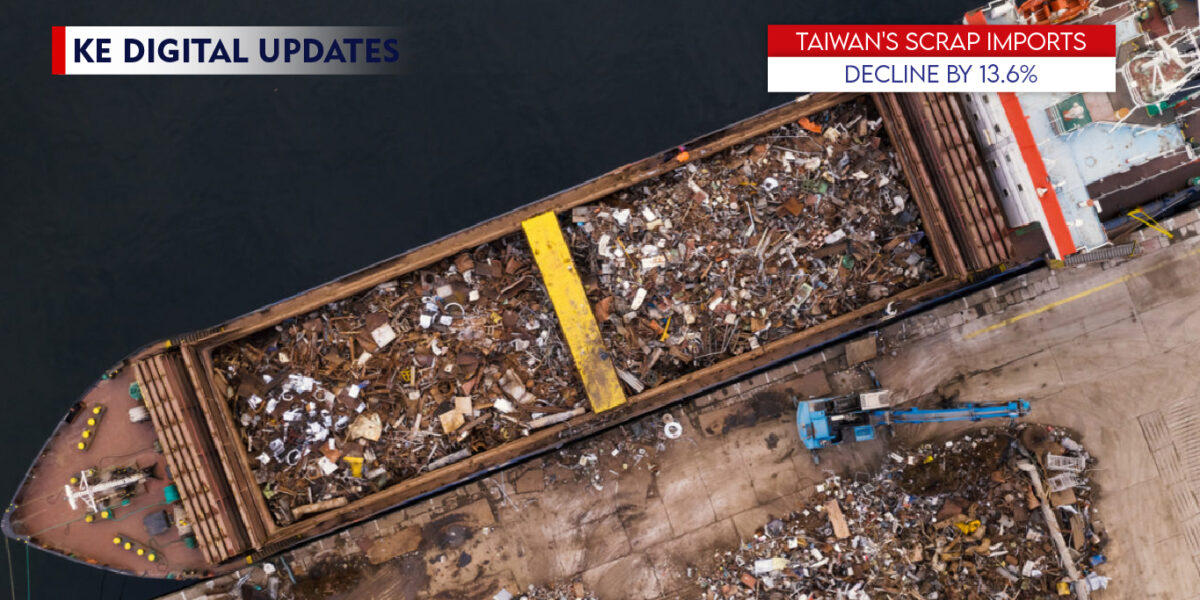Published on December 13, 2024
According to official customs data, Taiwan’s ferrous scrap metal imports have significantly declined during the first eleven months of 2024. Taiwan imported 2,749,544 metric tons (mt) of ferrous scrap from January to November. This figure represents a 13.6% decrease compared to the same period in the previous year, highlighting a notable contraction in the country’s scrap metal import activity.
Major Suppliers and Trends
The United States remained Taiwan’s top ferrous scrap supplier during this period. However, despite its leading position, the volume of scrap exported from the US to Taiwan decreased. The US supplied 1,134,894 mt of ferrous scrap to Taiwan, marking a 6.3% decline from the previous year’s figures. This reduction reflects broader trends in global trade and demand fluctuations within the scrap metal market.
Japan, another significant ferrous scrap supplier to Taiwan, experienced an even steeper decline in export volumes. From January to November, Japan exported 605,241 mt of scrap to Taiwan. This amount represents a substantial 31.9% decrease compared to the same period in the previous year. The considerable drop in Japanese exports can be attributed to multiple factors, including changes in market dynamics and supply chain disruptions.
November Import Figures
In the month of November alone, Taiwan’s scrap imports amounted to 216,320 mt. This volume reflects a 19.6% decrease year-on-year and a 15.3% decline from the previous month. The significant reduction in November’s import figures further underscores the downward trend in Taiwan’s scrap metal imports, aligning with the annual decrease observed throughout the year.
Market Implications and Broader Trends
The decline in Taiwan’s ferrous scrap imports indicates broader market trends and shifting demand within the steel and metal recycling industries. Several factors contribute to this downward trajectory, including:
Global Economic Conditions: The fluctuating global economy has influenced the demand for scrap metal, impacting trade volumes and market stability.
Supply Chain Disruptions: Ongoing disruptions in global supply chains, caused by transportation challenges and geopolitical tensions, have affected the availability and cost of scrap metal.
Domestic Market Conditions: Changes in Taiwan’s domestic market conditions, including variations in steel production and recycling capabilities, have also affected the reduced import volumes.
Conclusion
Taiwan’s significant decline in ferrous scrap imports from January to November 2024 highlights the dynamic nature of the global scrap metal market. While the US and Japan remain key suppliers, both countries have experienced notable decreases in export volumes to Taiwan. As the industry continues to navigate economic uncertainties and supply chain challenges, market participants must adapt to evolving conditions to maintain stability and growth in the scrap metal sector.


